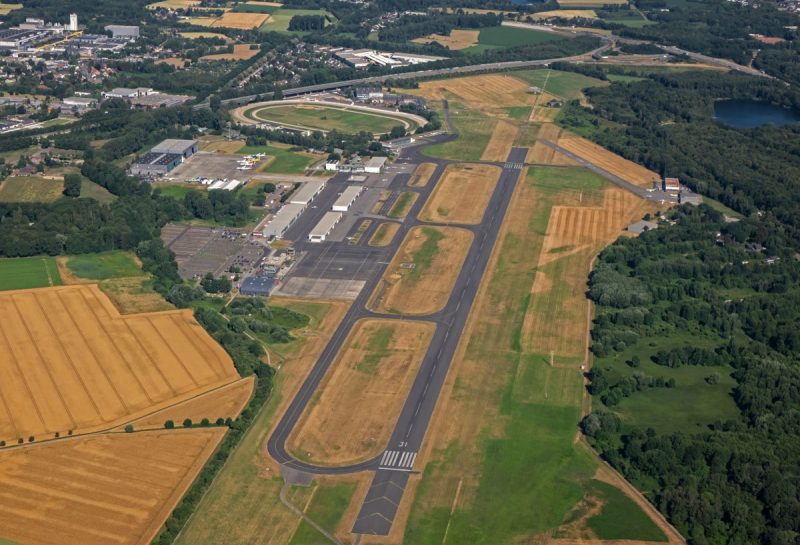The small Mönchengladbach airport wants to establish itself as a competence center for aviation with electric propulsion. On Friday, an e-plane made its circuits at the MGL for the first time.
Since 2019, Mönchengladbach Airport has been researching the opportunities and necessary innovations for air taxis in the Euregio Rhein-Maas region as part of the SkyCab project funded by the BMVI under the direction of the FH Aachen. The benefit of such agile electric aircraft is beyond question. They bring people to business appointments in a climate-neutral manner, deliver essential medicines or evacuate people from areas that are difficult to access.
Aachen University of Applied Sciences and Mönchengladbach Airport have now intensified their cooperation in the field of electric flying and have successfully completed the first test flight with a man-carrying electric aircraft from Aachen to Mönchengladbach. Due to the distance and battery range, the route is well suited and, in a densely populated area, also provides meaningful results for subsequent areas of application for electric aircraft such as the SkyCab. The project is supported by the state of North Rhine-Westphalia, which is promoting the electric aircraft used by Westflug Flight Training GmbH & Co.KG (Velis Electro by the Slovenian manufacturer Pipistrel). Velis Electro is the world's first electric aircraft to be certified by the European Aviation Safety Agency (EASA). With a wingspan of 10,50 meters, the two-seater aircraft corresponds to the dimensions of the future SkyCab.
Electric mobility needs the appropriate charging infrastructure. Therefore, the district government also funded a battery charger, which was installed at Mönchengladbach Airport at the beginning of November. The aim is to develop NRW into a hub for green mobility and electric flying. As part of the nationwide charging network, Mönchengladbach Airport is making great strides and feeding the electric charger with its own green photovoltaic electricity. The MGL currently produces about 20 percent of its electricity needs via a photovoltaic system, further installations for solar power are to follow.
Operational area: flight school
In addition to research, electric flying is already a topic in pilot training. The MGL offers the best conditions here, as it already has a training focus with several flight schools on site with the appropriate infrastructure. The advantage: Electric aircraft not only protect the climate, they are also much quieter than aircraft with conventional engines. With more than 100 take-offs and landings at the MGL every day, this is an important argument for the employees at the airport and the local residents.
Together with the flight schools at the airport, the MGL is investigating possible uses for electric aircraft. Mönchengladbach Airport can draw on the experience of Westflug and the eFlight Academy. Both flight schools are already training their pilots on Pipistrel Velis Electro aircraft. In addition, the MGL has a training concept specifically for air taxi pilots on the agenda.
Future: CO2-neutral drives
Research into climate-neutral mobility will continue at MGL even after the SkyCab project has ended. The airfield applied for follow-up projects at an early stage. Funding has now been approved for the OpAL research project (operational effects of new drives in aviation). Together with well-known consortium partners such as Boeing, SAP and the Technical Universities in Braunschweig and Darmstadt, the MGL researches procedures and processes related to CO2-neutral drives via fuel cells, hydrogen and electricity. This involves issues of logistics (supply vehicles and refueling) as well as the elaboration of processes on the ground, emergency management and structural requirements, for example for vertiports for air taxis. The project will start on January 1, 2023 and is scheduled to last two years.







 trail (for them it's free to use)
trail (for them it's free to use)